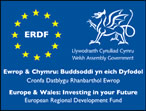Here is the key used for abbreviations and conventions in the National Terminology Portal:
adf – adferf (adverb)
ans – ansoddair (adjective)
be – berfenw (verb noun)
eb – enw benywaidd (feminine noun)
eg – enw gwrywaidd (masculine noun)
eg/b, eb/g – enw gwrywaidd neu fenywaidd (masculine/feminine noun)
ell – enw lluosog (plural noun)
adj – adjective (ansoddair)
n – noun (enw)
v – verb (berf)
In terms containing more than one word, the parts of speech for the terms in Welsh refer to the whole term, and not to individual words within the term. For example, ‘tâl mamolaeth’ (maternity payment) is listed as a masculine noun, because the two words taken together act as a masculine noun phrase or unit, despite the fact that ‘mamolaeth’ is a feminine noun.
The labels ‘mass noun’ and ‘count noun’ are used to describe nouns in English. A mass noun refers to something which can not be counted and therefroe has no plural form, and a verb is often used to correspond to it in Welsh. A count noun on the other hand refers to something which can be counted and expressed in the plural, and a noun is used to express the same concept in Welsh.
Usually, one term only is given in Welsh to correspond to each concept. This is the technical term which has been through the standardization process and has been confirmed as the preferred term. There are rare exceptions where two preferred terms are given, usually where there is a distinct difference between north ans south Wales usage, and where it is not possible to give one preference over the other. In some individual dictionaries within the Portal, admitted terms are also displayed, and they are shown in italic print within brackets after the preferred term. If there is a line through a term in these dictionaries, it means that the term is a deprecated one, and should not be used.


